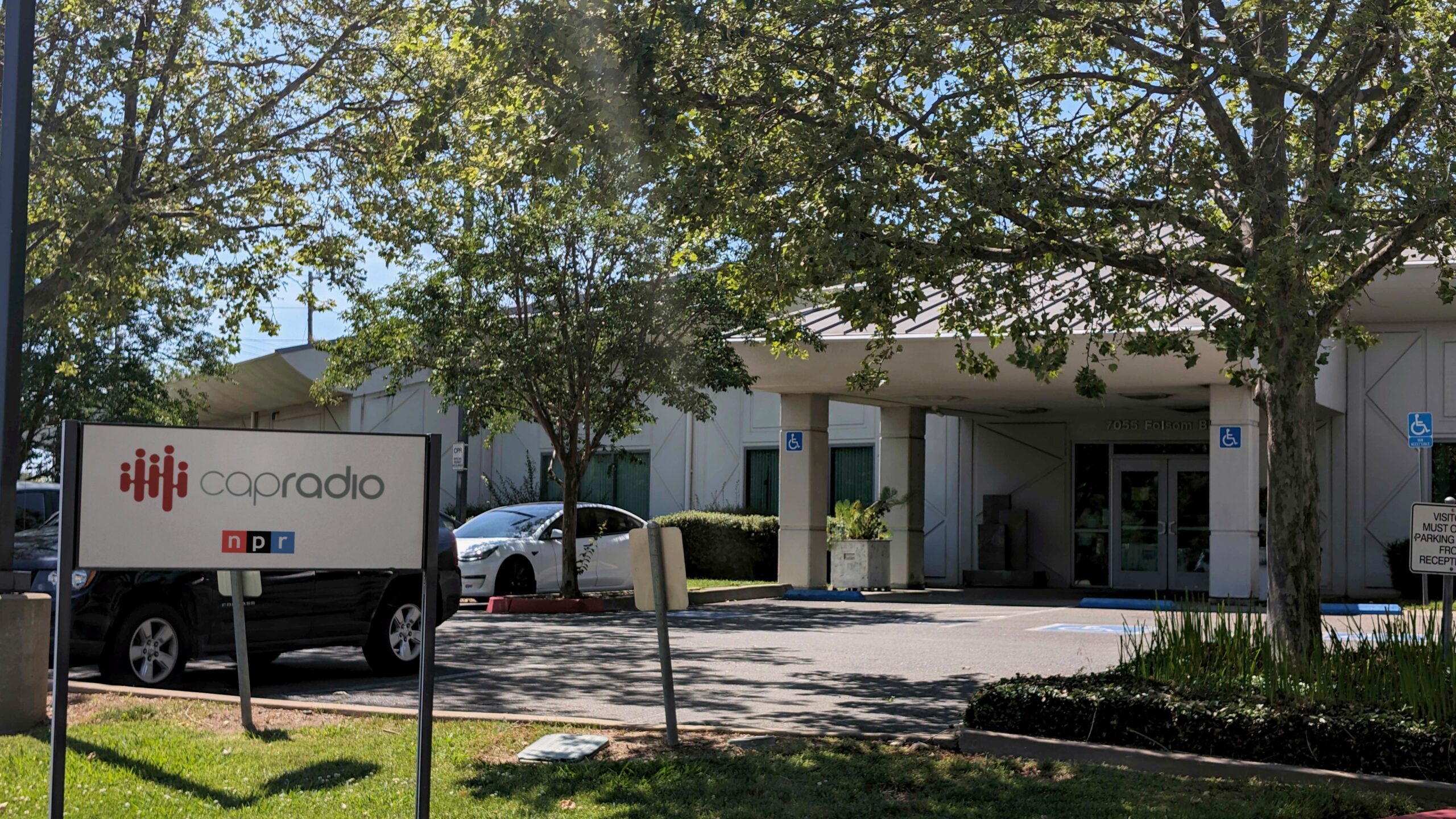How public media can ensure its push for diversity includes people with disabilities

Erin Alexis Randolph / Shutterstock
A woman carries a sign at the annual Labor Day Street Fair in Rutherford, N.J., September 2018.
Public Media for All Day Nov. 10 was a day for public media to advance our Diversity, Equity and Inclusion goals. We celebrated our good work while acknowledging the progress yet to be made. It reminded us that we are privileged to be a part of this national public media team dedicated to ensuring that all voices are heard.
So you can imagine the pain of being marginalized by such a woke group of folks. Nov. 10 left me wondering how people with disabilities remain underrepresented in our leadership, content creation, strategic goals and budgets.
One out of four Americans has a disability. We live in every county of every state. However, we remain underrepresented in public media’s viewer, workforce, leadership, volunteer and donor demographics. As a person with a disability, I know that if I am not counted, my voice will not be heard, my contributions will not be acknowledged and my needs will not be considered.
Responding to my plea for representation, someone asked, “How can we just ask someone if they have a disability? Won’t they be offended?” This question is a perfect example of ableism. It assumes that we are broken, wrong or less than other humans because we have a disability. My answer to that is, “How do you ask anyone about their race or gender?” Information is provided voluntarily by citizens who want their demographic to be recognized and represented.
I am not embarrassed to be legally blind. It is a part of my identity. I have gained skills that help me stay competitive and independent. My experience is an asset to my family, community and workplace. It is my choice to identify as a person with a disability, just as with any demographic question. Not asking me is to deny my contributions and value.
No one lives in one demographic. Our races, ages, abilities, genders and cultures are all intertwined. Each demographic provides a unique opportunity to experience discrimination and alienation if not recognized as having a valuable perspective.

I am advocating for four things:
- Anti-ableism all-staff and leadership training. So far, not all departments at PBS Wisconsin have taken part in such training. For those that have, it has spurred honest conversations. Participants acknowledge our bias and fear of doing or saying the wrong thing. Information leads to increased engagement.
- Adding an “A” to DEI — as in Diversity, Equity, Access and Inclusion. Adding “Access” makes it more difficult to leave accessibility improvements out of the budget and people with disabilities out of workforce and leadership goals, as well as creating content and resources and planning events.
- A landing page organized by topics such as travel, transportation, recreation, voting, benefits, laws and the arts to lead people living with disabilities to information, programs, events and services to live their best lives in the state we serve. On-air announcements introduce viewers and listeners to the resource page. This is a much-needed resource in Wisconsin. I would welcome the opportunity to walk through this idea with colleagues at other stations.
- Recruit board members with disabilities, as well as promote someone with a disability to a leadership role. The motto of the disability-rights movement is “Not about us without us!”
What does your station do to combat ableism? It would be great to start a national discussion to learn from one another. It is my goal that we support one another to become more aware of the disabling attitudes and actions that create barriers for all humans. Thank you for this opportunity to share my heart and ideas.
Wendi Dwyer is a director of corporate sponsorships at PBS Wisconsin and a legally blind disability-rights advocate. A development and advocacy professional, she has presented at the United Nations, UNESCO and the Library of Congress Literacy Awards, as well as other international forums. Dwyer also founded Literacy at the Well, which provides women and girls in South Sudan with the opportunity to learn how to read and write while waiting to fill their jugs with safe water.





